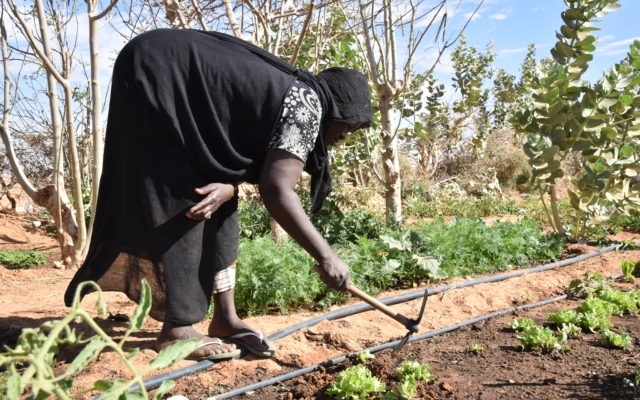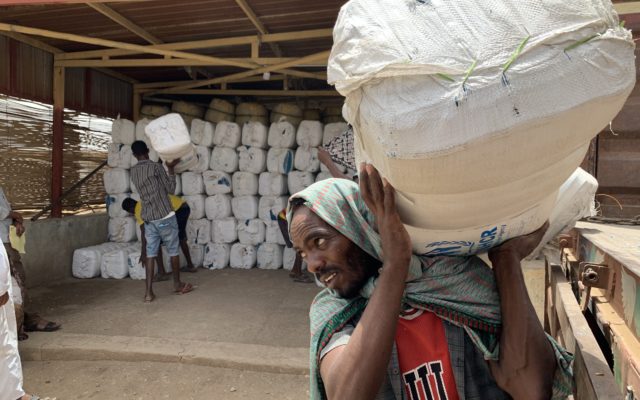“I become happy every time I see all the trees”
In the flood-prone refugee camps of Cox’s Bazar, Bangladesh, UNHCR runs an environmental unit dedicated to easing pressure on the local surroundings.
© UNHCR/Hannah Macdonald
Ehsanul Hoque is an assistant environment officer in Cox’s Bazar’s environmental unit and knows just how devastating climate-related disasters can be.
“I can remember the 1991 cyclone,” he explains. “My younger sister and I took shelter under the bed with just one lantern and we were praying to God. The country didn’t have the capacity to manage these types of emergencies and more than 130,000 people died in coastal areas and islands.
“But my current job offers some solutions to prepare for or avert disasters, so that’s the most rewarding part.”
These solutions are badly needed in the refugee camps of Cox’s Bazar, which have a combined population of 900,000 people – more than Amsterdam, Marseille or San Francisco.
“The camps are in the paths of major cyclones and there is competition for space in hilly terrain,” says Ehsanul. “Rainfall data confirms a sharp increase in rainfall for the month of July in recent years. And recent flooding in the camps damaged over 6,000 shelters and forced more than 25,000 refugees to seek shelter in communal facilities or with other families.”
So for Ehsanul and the rest of his team, flood prevention is a major priority. Tackling deforestation, which increases the risk of flooding, is the cornerstone of their solution. And since 2018, families in the camp have been provided with bottles of liquefied petroleum gas (LPG), reducing their need to cut down trees for firewood.
Before the LPG scheme was launched, around 730 tonnes of firewood were being harvested every day around Kutupalong camp alone – an area the equivalent of at least four football fields. As well as the terrible environmental damage, there were also real concerns about safety.
“We had to collect firewood. It took us the whole day,” says Monowara, a mother of five. “It was dangerous. I was scared every time, every day.”

Thankfully, Monowara no longer has to risk her life on such hazardous journeys. Her family is one of 200,000 households provided with gas by UNHCR, so they can use fuel and cook food without endangering themselves – or the forests around them.
Overall, the demand for firewood has been reduced by 80 per cent in Cox’s Bazar and Ehsanul is optimistic about the long-term environmental impact.
“I become happy every time I see all the trees,” he says. “If we prepare now, we’ll be reaping the benefits for many years to come. It’s our contribution to the next generation – for our children and our grandchildren.”
Learn more about how UNHCR is working with refugees tackle climate change.




